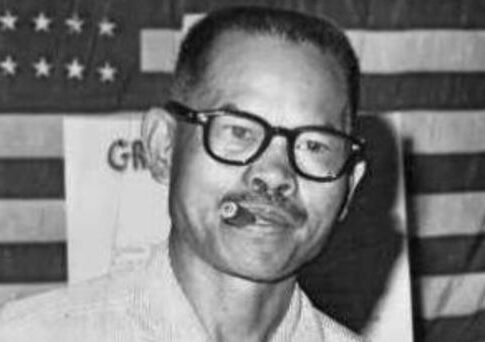by Lia Reichmann, AsAmNews Contributor
Recent court rulings against the Deferred Action for Childhood Arrivals (DACA) program, which protects undocumented immigrants brought to the United States as children from deportation, have left many feeling uncertain about their future.
DACA recipient Diana (Woojung) Park first found out she was an undocumented immigrant after starting to apply for scholarships for her high school. She says her family kept her in the dark because they wanted to protect her and didn’t want her to think she was “less than anyone else.”
Park admits that she was sheltered during her childhood, but now understands why her mother kept that secret from her.
Park felt her mother had “good intentions” sheltering her from her undocumented status secret, but when first finding out she felt “very sad” and “a little bit betrayed.” However, she also felt “sad” for her mother that she was ashamed of keeping her status a secret.
LATEST STORIES
“It was very confusing, to be honest, to navigate how I should take in that news because I just thought that I was like everyone else growing up,” Park said in an interview with AsAmNews. “But, in fact, I wasn’t a citizen, and in public school I really enjoyed history and American history…and I really embraced the American dream. So I [had] to reevaluate what the American dream meant to me.”
She also said she had to reevaluate this country as well as her personal identity after finding out she was undocumented.
“It’s definitely made me reevaluate the country that we live in, and how there’s so much inequity in this country, and how I have to abide by all the laws, but I’m still barred from being an actual citizen,” Park said. “It feels like I don’t belong here. People don’t want me here…I had to definitely navigate and reevaluate and reform, dismantle my old identity to rebuild my new one, which is knowing and integrating the fact that I am [an] undocumented Korean American.”
DACA and where it stands now
In 2012, former President Obama introduced DACA program through an executive order allowing undocumented immigrant who came to the U.S. as children to continue studying and working without living under the threat of deportation.
Now the program’s status is unclear with a recent decision from an appellate court. In July 2021, U.S. District Judge Andrew Hanen ruled that DACA was unlawful, blocking the program from accepting new applications but allowing current receipient to renew their status. Last month, the U.S Circuit Court of Appeals for the Fifth Circuit sent the case back to him affirming his limitations, but also asking him to take into consideration a new rule issued by the Biden Administration.
Hanen has since maintained that the program can continue accepting renewals but not new applications while he waits to hear legal arguments from attorneys concerning Biden’s new rule. His decision wards off any fears of deportation for the hundreds of thousands of immigrants in the DACA program. However, immigrant rights advocates and DACA recipients are concerned about the future of the program if the case heads to the conservative Supreme Court.
Park works as an immigrant justice organizer at the MinKwon Center for Community Action, an organization that provides several services to undocumented immigrants including assistance with DACA renewals. She said she feels “anxiety” and “exhaustion” over Hanen’s ruling last month, a feeling others in the community share. Before, she felt an “urgency” to “mobilize” and do things to help, but now that’s changed.
“The community’s definitely exhausted of fighting. And it’s a shame that we built this movement up to be so strong. And this DACA court case has really tested that foundation and we’re looking to regroup. It doesn’t mean that we have surrendered and given up completely, but I feel generally anxious about what is going to happen,” Park said. “I think there needs to be preparation… to prepare us for the worst. But it is a mental health game, and it is a mind game at the end of the day of just being patient, and not letting the anxiety overcome you.”
She thinks not enough is being done to protect the undocumented community, with a lack of media attention towards them.
“A lot of people don’t realize that Korean Americans are also undocumented and it’s not just based within the Latinx group,” Park added. “And that can be extremely frustrating, and also a really great obstacle when it comes to getting our voices heard…because how can people help when they don’t know that we exist?”
The missing step for DACA recipients who face no path to citizenship
Since 2012, over 800,000 young adults have been granted DACA status and remain in the country. Those in the DACA program currently don’t have a direct path to citizenship and have to keep renewing their status in order to avoid deportation.
Heena Musabji, co-founder of the non-profit Pro Bono Network, said DACA holders can get U.S. citizenship if there’s a change in their “circumstances,” like through marriage and obtaining a green card. But for most recipients, all they are able to do is “renew this limbo status” that allows them to not be deported, but still not granted “all the rights” that someone with documented status would have.
“I just feel like it’s such a sad status, because it gives you an initial sense of security. But it’s not putting you on a pathway to anything. So here we have identified this whole sector of the population, right…but we can’t just leave them in this ‘no status, but kind of status’ situation. There has to be something for them to grow into,” Musabji said.
In addition to other civil legal work, PBN also helps provide legal representation to low-income immigrant clients, including obtaining visas for crime victims and applying for DACA status. Musabji, who previously had her own private immigration practice, is also the director of development and an immigration project manager at PBN, noted that one of PBN’s clients, Angela, is facing the direct impact from Hanen’s DACA rulings as her status is up in the air.
Angela applied for DACA status when she turned 16. According to Musabji, she was “excited to apply” and not have to worry about being “separated” from her family. When Angela submitted her DACA application it was not processed because of last year’s ruling, and it is continuing to be held after the affirmation of last month’s ruling. Her dreams of going to college, among other things, were taken away, and because she doesn’t have a social security number faces additional challenges to finding a job.
Musabji said she still receives calls from past clients from her law firm asking when DACA will start taking new applicants.
“These individuals essentially didn’t come of their own choosing, they were brought here as children. And this is the only country they really have known or grown up in. So it makes sense that there should be a path, but there currently isn’t one,” Musabji said in an interview with AsAmNews.
She added that the stereotype that someone came into the country illegally isn’t necessarily true for all DACA recipients.
“Their parents might have brought them in on a valid visa with valid status, but for whatever reasons, economic or otherwise, they may not have been able to maintain their documented status and they lapsed,” Musabji said.
If the DACA program were to be overturned, which will likely be up to the Supreme Court without any legislative action, the status of those in the program becomes very unclear.
“DACA grants you what’s called deferred action. If you have no deferred action, then you can get picked up and then removed from the country and sent to a country where you’ve never really lived before, you may not speak the language, you may not know the customs and culture, because you haven’t been there,” she added.
Musabji said for Dreamers and other undocumented immigrants there needs to be some “next step” available to them – whether that’s a process to apply for “lawful permanent residency” which already has a “pretty high vetting process” or more protections in general.
“I thought DACA was a nice entry point into [more protections], as long as it led to somewhere. But the problem is, it doesn’t lead anywhere. I think the hope was that it would [have been] step one, and you know, you have to create legislation to give them a pathway,” Musabji said. “So whatever millions of [undocumented] people we have here, it doesn’t make sense to not give them some sort of category. And a pathway to grow. That’s the only way we’re going to build as a nation…How are we going to improve as a society and country if we don’t allow for everybody actually living here to have some protections and fully contribute in a meaningful way.”
AsAmNews is published by the non-profit, Asian American Media Inc. Follow us on Facebook, X, Instagram, TikTok and YouTube. Please consider making a tax-deductible donation to support our efforts to produce diverse content about the AAPI communities. We are supported in part by funding provided by the State of California, administered by the California State Library in partnership with the California Department of Social Services and the California Commission on Asian and Pacific Islander American Affairs as part of the Stop the Hate program. To report a hate incident or hate crime and get support, go to CA vs Hate.








